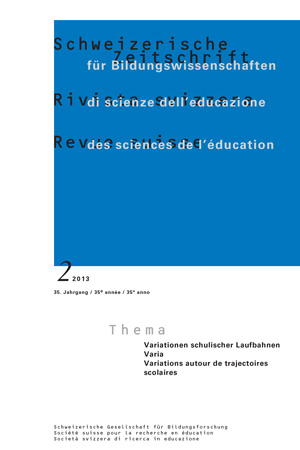The predictive validity of school placement decisions in Luxembourg: A comparison between track continuation rates and test scores.
DOI:
https://doi.org/10.24452/sjer.35.2.4914Keywords:
School placement decision, predictive validity, track continuation rates, achievement test, LuxembourgAbstract
Within this study, the predictive validity of school placement decisions was assessed after three years of schooling in Luxembourgish secondary school. For this purpose, continuation rates of the students within each school track, as well as individual scores on standardized scholastic achievement testswere collected at the beginning of ninth grade. We assumed that students oriented to the highest expectations track in secondary school should achieve higher test scores than students who were recommended for one of the lower tracks. Moreover, it was expected that a high number of students still continuing within the track they had been assigned to, should indicate a high validity of the initial school placement decisions. However, results show that although continuation rates were high, the degree of overlap between the test-score distributions related to the different tracks was also high. The contradiction between these different indicators of the predictive validity of school placement decisions suggests that the permeability of the Luxembourgish secondary school is rather low. Therefore, the use of continuation rates as the only measure of predictive validity seems to be inappropriate.
Downloads
Downloads
Published
Issue
Section
License

This work is licensed under a Creative Commons Attribution 4.0 International License.



